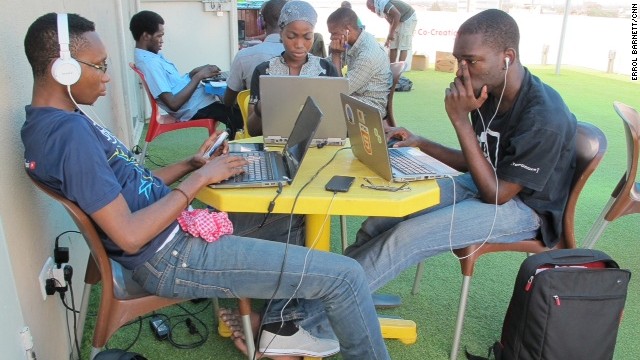News
Here’s why the middle class in Nigeria is almost non-existent

Nigeria, like many other countries around the world, struggles with issues of economic inequality and a lack of a stable middle class. The country has a large population and a wealth of natural resources, but economic growth has been unevenly distributed, leaving many Nigerians struggling to make ends meet.
The term “middle class” refers to a group of people who are neither rich nor poor, but who have a certain level of economic security and stability. Members of the middle class typically have access to education, healthcare, and other basic services, as well as the ability to save money and invest in their futures.
Nigeria is a country with a large population and significant economic potential. However, despite this potential, the middle class in Nigeria is almost non-existent. The country has one of the highest rates of income inequality in the world, with a small percentage of the population controlling the vast majority of the country’s wealth. According to a 2019 report by the World Data Lab, only about 2% of Nigeria’s population is considered to be middle class, with the rest falling into either the lower or upper class categories.
In this article, we will explore the reasons behind this phenomenon. One of the main reasons for the absence of a middle class in Nigeria is the high level of income inequality.
According to the World Bank, Nigeria is one of the most unequal countries in the world, with the top 10% of the population accounting for over 40% of the country’s income. This means that a large proportion of the population lives in poverty, with little opportunity to move up the economic ladder.
Another factor contributing to the absence of a middle class in Nigeria is the country’s over-reliance on the oil sector. Nigeria is heavily dependent on oil exports for its revenue, which has led to a situation where the majority of the population is not involved in the formal economy. As a result, there are few opportunities for people to move up the economic ladder and establish themselves as members of the middle class.
Additionally, corruption and poor governance have contributed to the absence of a middle class in Nigeria. Corruption is a widespread problem in the country, and it affects all levels of society. This has led to a situation where the resources that should be used to create a middle class are instead siphoned off by corrupt officials.
Another factor is inequality in the political system, which has led to the concentration of wealth in the hands of a few elites. Many Nigerians feel that the political system is rigged against them, and that there are few opportunities for them to move up the economic ladder.
The lack of a stable middle class in Nigeria has significant implications for the country’s social and political stability. Without a strong middle class, there is little economic mobility or opportunity for people to improve their lives. This can lead to social unrest and political instability, as people become frustrated with the status quo and demand change.
The lack of infrastructure in Nigeria is also a significant factor contributing to the absence of a middle class. The country has a poor road network, inadequate power supply, and a lack of access to clean water and sanitation. This makes it difficult for businesses to operate effectively, and it limits the opportunities for people to establish themselves as members of the middle class.
The absence of a middle class in Nigeria has several implications. It contributes to the country’s high poverty rate and creates a situation where people have little opportunity to improve their economic situation. This, in turn, creates a significant barrier to economic growth and development.
To address the absence of a middle class in Nigeria, there is a need for significant structural reforms. This could involve diversifying the economy away from its reliance on oil, addressing corruption and poor governance, and investing in infrastructure. Additionally, there is a need to create policies that promote social mobility and provide opportunities for people to move up the economic ladder.
The absence of a middle class in Nigeria is a significant challenge that the country must address to achieve sustainable economic growth and development.
The high level of income inequality, over-reliance on the oil sector, corruption and poor governance, and lack of infrastructure are all contributing factors. To address this challenge, significant structural reforms are required to promote social mobility, create opportunities for people to move up the economic ladder, and create a more inclusive and equitable society.






